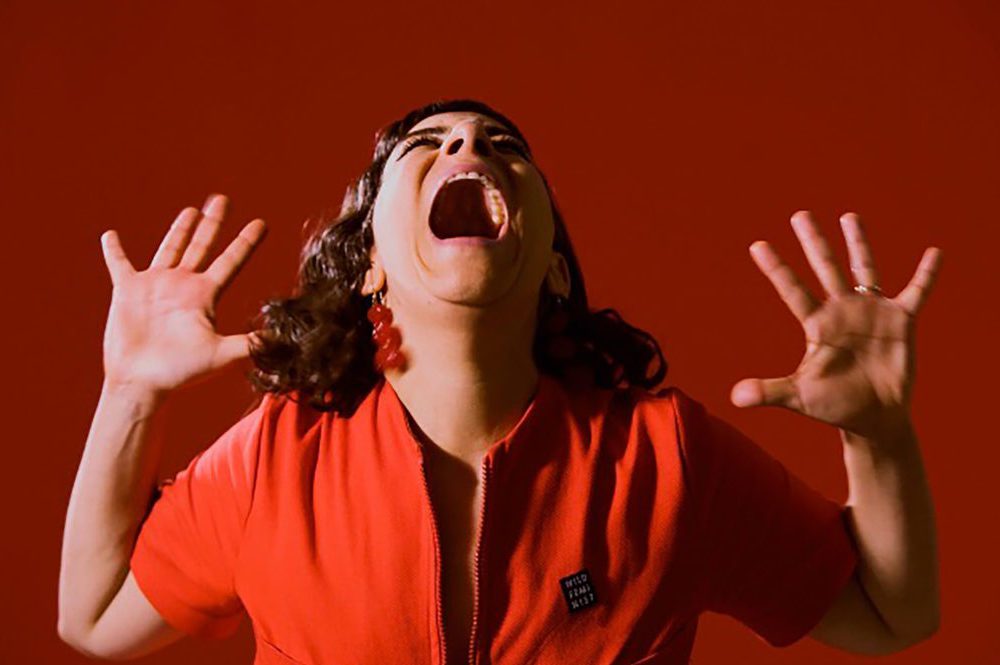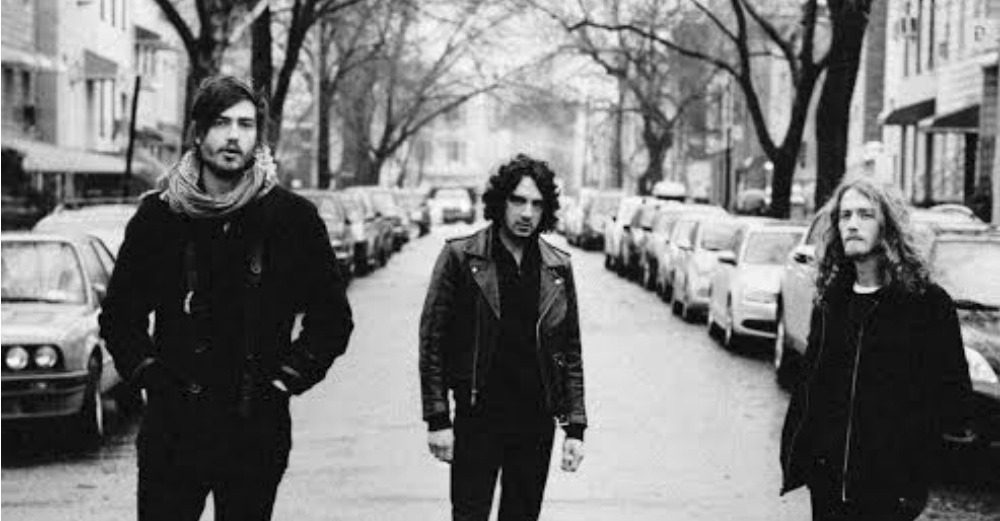

I have a duty as a human being and a white Jewish American feminist to educate myself, learn, listen and fight every day against systemic racism, white supremacy, police brutality and anti-Black violence with dollars, words and actions. Many Black musicians have inspired me, from Aretha Franklin to Etta James, Billie Holiday, Sharon Jones, Prince, Bill Withers and Otis Redding. I know their incredible words and voices, but I do not know their struggle. With this video premiere, I’m donating 100% of all sales of my album Quiet For Too Long and my other music on Bandcamp to two organizations: Ethel’s Club, founded by Naj Austin and named after her grandmother Ethel Lucas, with the mission of creating healing spaces that center and celebrate people of color; and the National Bail Out, a Black-led and Black-centered collective of abolitionist organizers, lawyers and activists building a community-based movement to end systems of pretrial detention and ultimately mass incarceration. BLACK LIVES MATTER. – Solvej Schou
When Solvej Schou wrote “No One Can Take Our Love,” it took a different turn from her other songs for the 2019 album, Quiet for Too Long. By phone from her home in Pasadena, just outside of Los Angeles, the singer-songwriter describes it as perhaps “the most positive song on the album.”
On Quiet for Too Long, Schou digs into politics, beauty standards, mental health and loss. “No One Can Take Our Love,” is, as the title implies, a love song, which she wrote for her husband. “I also wanted to have a universal theme, like love in the face of hate,” she says. “Even writing a love song,” she says, “there has to be intensity in there.”
Schou commissioned experimental filmmaker Meejin Hong to create an animated video, which premieres today. In the video, desert cacti transform into loving, clasped hands and the world splits into lip-locked faces. “The video was all about closeness. It’s all about love,” says Schou. “It’s all about physical togetherness.”
In the time that passed between when Schou commissioned the video and its premiere, both the song and the clip have taken on new meaning. On March 13, Schou developed a cough. About a week and a half later, the day after she received the video, the she was told by the doctor to consider the cough to be COVID-19 and advised to distance herself from her husband. “We ended up doing that for three weeks,” Schou recalls. “He slept separately from me. We separated everything in our kitchen and our bathroom. I didn’t leave the house.”
Meanwhile, the video that she had commissioned, and just received, was a celebration of physical connection. “There’s this weird irony in having this video all about coming together and being this unit and having to distance from my husband and see him from afar,” she says. In the midst of a very personal period of social distancing, the song and video became symbolic of everything Schou had to temporarily avoid. “It’s maybe the sense of aspiration of touch, even though it was made before the pandemic,” she says. “Seeing it for the first time felt even more powerful to me.”
Even the song itself plays as if it has been written for this specific time. Schou references a lyric, “When the world feels like a bubble that’s about to explode, you’re not alone,” that’s all-too-relevant in the midst of the COVID-19 pandemic. “We’re living in the precipice of great collective grief and loss and we’re so isolated,” she says. “Yet, at the core of being human, we’re not alone.”
When Schou was able to get a COVID-19 test in late April, the results came back negative. It wasn’t an antibody test, so she doesn’t know for sure if she had the illness or another respiratory ailment. “I know there are other people in the situation of just not knowing, having that uncertainty,” she says.
Schou, who is also a writer and penned several essays for the 2018 book Women Who Rock: Bessie to Beyoncé. Girls Groups to Riot Grrrl., grew up in Los Angeles and was influenced by a mixture of rock, blues and soul artists. Quiet for Too Long is her second solo album, the first to include a full band, and draws heavily from her political and feminist values. The album’s title comes from opening track “America.”
“The song ‘America’ came out of my horror at the murder of unarmed black men and women by police,” says Schou. “It also talked about immigration and gun control and a lot of issues pertaining to America.” Elsewhere on the album, “Age and Beauty” refers to women growing older and “Flicker Away” is about “being a woman and dealing with anxiety and depression and how to survive, push through that.”
The title of the album, she says, came as a surprise to some who knew her. “There is a part of me that loves talking to people, that has a lot of experience interviewing people because of having been a writer for so long, that loves singing loud and forceful,” she says. “Then there’s a part of me that’s pretty introverted and feels comfortable processing things alone. Quiet for Too Long can be interpreted in different ways.”
After recovering from her illness, Schou is regaining her own voice as well. “It is literally my therapy, singing everything out of me,” she says.
Solvej Schou performs live on Instagram this Saturday, June 13. Follow her on Facebook for ongoing updates.




